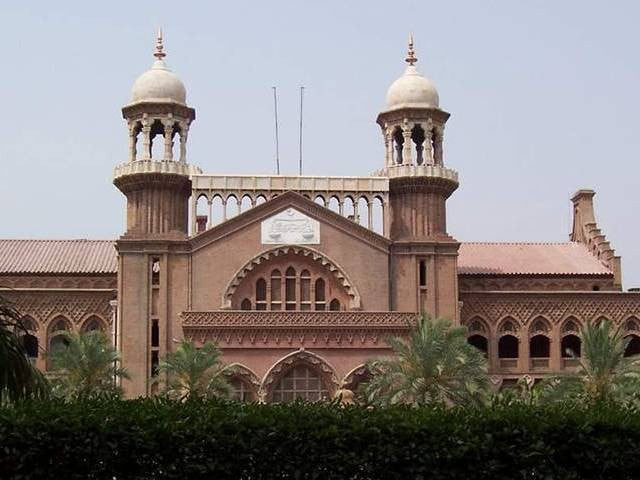LHC upholds Naqvi’s appointment
Declares ECP has the right to name caretaker chief minister

The Lahore High Court’s (LHC) Justice Shahid Karim on Monday dismissed a plea challenging the appointment of Punjab caretaker Chief Minister Mohsin Raza Naqvi.
The court observed that the appointment of the caretaker CM has been made in accordance with the law. According to the court, the ECP has the right to appoint the caretaker CM.
As the proceedings commenced earlier today, the lawyer representing the federal government told the court that in a situation where a caretaker CM misuses his powers, the Election Commission of Pakistan (ECP) and the courts are present.
He argued that the electoral watchdog has stopped the implementation of several orders passed by Naqvi and maintained that “it is purely the ECP’s jurisdiction to appoint the caretaker CM.”
Justice Karim remarked that a caretaker CM could not do anything as long as the ECP is “neutral and sovereign”.
The petitioner’s counsel advocate Azhar Siddique told the court that no due process was adopted by the ECP in the appointment of the Punjab caretaker CM.
“Several measures taken by the caretaker CM are against the real essence of the constitution,” he argued and requested the court to set aside the impugned notification through which he was appointed as CM, declaring it as illegal.
The petition was filed by Awami Muslim League (AML) chief and former interior minister Sheikh Rasheed Ahmed, through advocate Siddique, against Naqvi over his alleged affiliation with Pakistan Peoples Party (PPP) Co-Chairperson Asif Ali Zardari, Pakistan Democratic Movement (PDM) and active involvement in the regime change movement against the Pakistan Tehreek-e-Insaf (PTI).
The petitioner’s counsel implored that since the ECP and its members have violated the constitutional and statutory requirements vis-à-vis appointing the Punjab caretaker CM, it be censored and held guilty of violating its constitutional position and committing misconduct, hence the same be declared to be partial and incapable to hold a “free and fair election”.
He submitted that Mohsin Naqvi’s name was put forth by the present regime on account of his “close association” with the current ruling elite, particularly Zardari and the Sharif family, and his “political enmity” against the opposition.
The petition stated that Naqvi has been involved in the regime change against the PTI and is actively working for the PDM, adding that he had been involved in a case of corruption and corrupt practices initiated by the National Accountability Bureau (NAB) where he struck a plea bargain, voluntary return under section 25 of the National Accountability Ordinance (NAO), 1999 and is thus a convicted person.
According to Section 15 of NAO, where an accused person was convicted of an offence under Section 9 ibid, he shall forthwith cease to hold public office and he shall stand disqualified provided further that any accused person who has availed the benefit of Section 25 ibid shall also be deemed to have been convicted for an offence under NAO and shall stand disqualified for public office.
According to Section 5 (n) of NAO, a holder of public office refers to a person who has been the president of Pakistan or the governor of a province, is or has been the prime minister, chief minister, speaker, deputy speaker, minister, advisor, etc.
The plea noted that the Supreme Court in a suo moto case had held that if a person is accused of corruption or corrupt practices and volunteers to offer to return the amount he has pocketed or gained through illegal means, they cannot hold any government/public office.
Published in The Express Tribune, March 28th, 2023.


















COMMENTS
Comments are moderated and generally will be posted if they are on-topic and not abusive.
For more information, please see our Comments FAQ